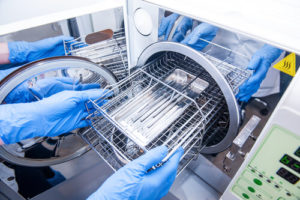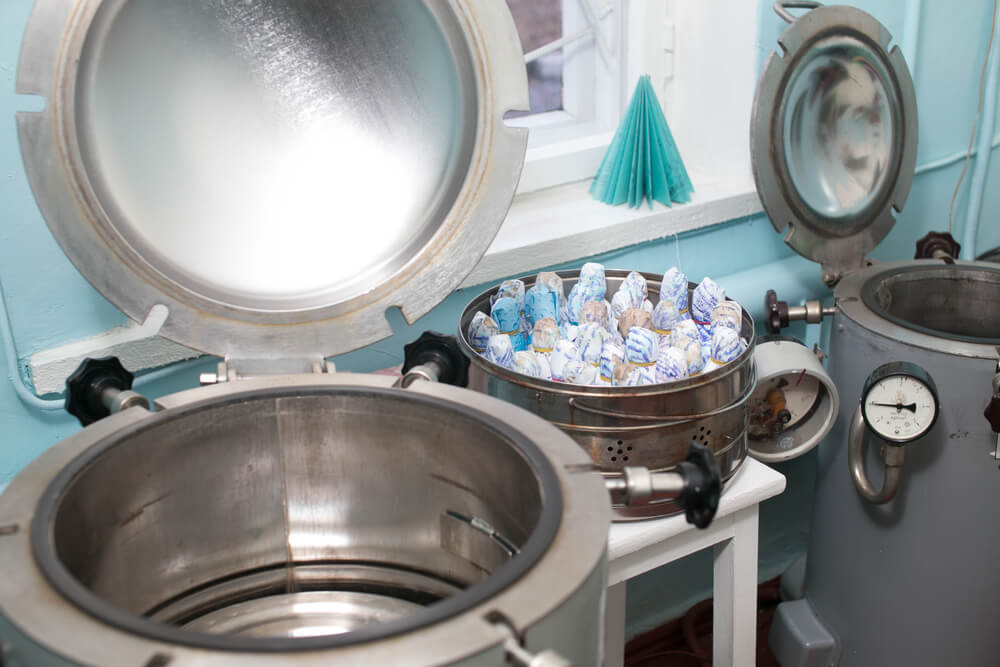Table of Contents
If you work in a laboratory or medical facility and want to keep your working space clean, you may have heard of the term autoclave. The history of autoclave use dates back in 1879 by Charles Chamberland, a French microbiologist that used a different kind of method for cleaning medical tools. Sterilization became a trend for many scientists, dental practitioners, and medical professionals. Throughout medical advancement, autoclave sterilizer through steam is used together with dry-heat sterilizing. Diversified technology in cleaning equipment is useful not just for medical tools but also for dental handpieces or scalers.
Using Autoclaves On Cleaning Tools For Your Practice
What is the importance of sterilization in a professional laboratory, hospital or clinic? Most bacteria acquired through dirt, toxic waste, or other infectious viral diseases needs thorough cleansing. It is not enough to do the usual wipe and mop way. Some equipment such as Petri dishes, flasks, and dental equipment like handpieces need proper care. Make sure to throw items that are already expired or already worn out rather than using an autoclave. Check your local state or government institution for their policies and guidelines in throwing these biohazard wastes.
How Does An Autoclave Work?
After a dental cleaning, most bacteria left on your dental handpieces may be risky for your next patient. Autoclaves use steam in sterilizing equipment where all trapped air is removed in the chamber. Some autoclaves have different methods of cleaning like vacuum pumps, removing gravity or plain steam method. Autoclaves need a certain temperature achieved before proceeding to the next cleaning cycle. Through this method, bacteria aren’t able to live and eventually dies through heat from the steam. Without oxygen, bacteria are also not able to live and feed on since their source of life is gone. Autoclaves are mostly used by veterinarians, dentists, food production facilities and pharmaceutical laboratories. Even commercial is applicable for autoclaves as some tattoo artists use autoclave steam sterilizers.
Advantage of Steam Sterilizers
The original concept of an autoclave is through an autoclave steam sterilizer. In this way, heat needs to be high enough to the standard point that the proteins in the cell break down and coagulate. Therefore, this is an effective way to kill microbes not seen and killed easily. Through the steam, it helps transfer the heat from the boiling point of the water through the air evaporated. Steam autoclaves are useful for any facility who want to sterilize their waste in a safe and secure manner. If you are a medical or dental professional who wants to get one, make sure that you get a certified autoclave recognized by your local health departments. These are some of the items that an autoclave steam sterilizer cleans: flammable or heat-sensitive objects, glassware, most metal instruments, culture media, liquid items, or dense loads.
Advantage of Dry Heat Sterilizers
On the other hand, there is another method for sterilizing materials. Dry-heat sterilization is an old method that is still useful today. However, it is not usually the sole cleansing method and more people are turning to steam sterilization for better results. Most dry-heat sterilization is used to clean fats, oils, powders, or metal instruments that rust easily. Autoclave steam sterilizer may corrode metals faster through its water-heat based cleaning.
Maintain the Quality of Your Autoclaves
Using an autoclave to improve the quality of your items is a responsible way of taking care of your costly items. Ensure that your autoclave is maintained properly through checking its warranty. Make sure to follow the instructions in using an autoclave to avoid it from breaking easily. Get the best autoclave with certified quality to avoid buying more often than you need.
